Have any question?
Microsoft Certified Azure DevOps Engineer Expert Training
Gain expertise in designing and implementing strategies for collaboration, code, infrastructure, source control, security, compliance, continuous integration, testing, delivery, monitoring, and feedback.
Exam Name: AZ-400, Designing & Implementing Microsoft DevOps Solutions
Requirement: AZ-104 & AZ-204 Certifications
Job Role: DevOps Engineer
Cloud Chalktalk is a Houston TX based company and provides both Online and In classroom Azure Certification deliveries in 25 major cities of United States.
Designing & Implementing Microsoft DevOps Solutions (AZ-400)
Starting at $44 /mo with![]()
Prequalify now
Overview
Microsoft Certified DevOps Engineer Expert (AZ-400) certification training aims you to get trained on a broad range of aspects related to DevOps, ranging from strategy formulation, implementation of constant delivery models, dependency management to the application infrastructure. The course will also teach you to create automation environments, collaborate and test value delivery channels and the various agile strategies exploited in these domains.
The current course we provide is as per the requirements and needs of the organizations.
Providing Industry specific and focused Azure DevOps Engineer Certification is our agenda.
Hands on learning makes the course easy to take home with Azure & DevOps technology understanding. Azure DevOps Exam can be easily achieved in this format.
The average salary of azure devOps engineer in the USA is $130,000 per year or $66.67 per hour.
Entry level positions start at $117,500 per year for freshers. And for experienced professionals up to $159,875 per year.
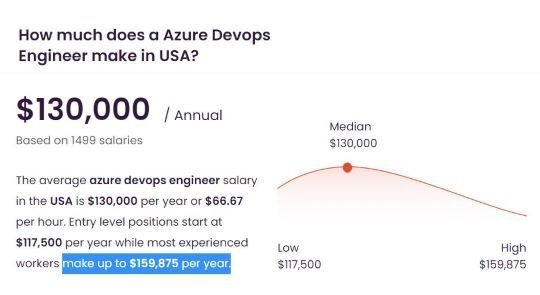
Audience
- Azure Administrator
- Azure Developer
Objective
Earning the AZ 400 Certification will validate your skills given below:
This course is designed to equip you with the skills measures given below:
Curriculum
Design and implement logging
assess and configure a logging framework
design a log aggregation and storage strategy (e.g., Azure storage)
design a log aggregation and query strategy (e.g., Azure Monitor, Splunk, Exabeam,
LogRhythm)
interrogate Log Analytics logs using basic Kusto (KQL) queries
manage access control to logs (workspace-centric/resource-centric)
integrate crash analytics (App Center Crashes, Crashlytics)
Design and implement telemetry
design and implement distributed tracing
inspect application performance indicators
inspect infrastructure performance indicators
define and measure key metrics (CPU, memory, disk, network)
implement alerts on key metrics (email, SMS, webhooks, Teams/Slack)
integrate user analytics (e.g., Application Insights funnels, Visual Studio App Center,
TestFlight, Google Analytics)
Integrate logging and monitoring solutions
configure and integrate container monitoring (Azure Monitor, Prometheus, etc.)
configure and integrate with monitoring tools (Azure Monitor Application Insights,
Dynatrace, New Relic, Naggios, Zabbix)
create feedback loop from platform monitoring tools (e.g., Azure Diagnostics extension,
Log Analytics agent, Azure Platform Logs, Event Grid)
manage Access control to the monitoring platform
Develop an actionable alerting strategy
identify and recommend metrics on which to base alerts
implement alerts using appropriate metrics
implement alerts based on appropriate log messages
implement alerts based on application health checks
analyze combinations of metrics
develop communication mechanism to notify users of degraded systems
implement alerts for self-healing activities (e.g., scaling, failovers)
Design a failure prediction strategy
analyze behavior of system with regards to load and failure conditions
calculate when a system will fail under various conditions
measure baseline metrics for system
leverage Application Insights Smart Detection and Dynamic thresholds in Azure Monitor
Design and implement a health check
analyze system dependencies to determine which dependency should be included in
health check
calculate healthy response timeouts based on SLO for the service
design approach for partial health situations
design approach for piecemeal recovery (e.g., to improve recovery time objective
strategies)
integrate health check with compute environment
implement different types of health checks (container liveness, startup, shutdown)
Design an authentication and authorization strategy
design an access solution (Azure AD Privileged Identity Management (PIM), Azure AD
Conditional Access, MFA, Azure AD B2B, etc.)
implement Service Principals and Managed Identity
design an application access solution using Azure AD B2C
configure service connections
Design a sensitive information management strategy
evaluate and configure vault solution (Azure Key Vault, Hashicorp Vault)
manage security certificates
design a secrets storage and retrieval strategy (KeyVault secrets, GitHub secrets, Azure
Pipelines secrets)
formulate a plan for deploying secret files as part of a release
Develop security and compliance
automate dependencies scanning for security (container scanning, OWASP)
automate dependencies scanning for compliance (licenses: MIT, GPL)
assess and report risks
design a source code compliance solution (e.g., GitHub Code scanning, GitHub Secret
scanning, pipeline-based scans, Git hooks, SonarQube, Dependabot, etc.)
Design governance enforcement mechanisms
implement Azure policies to enforce organizational requirements
implement container scanning (e.g., static scanning, malware, crypto mining)
design and implement Azure Container Registry Tasks
design break-the-glass strategy for responding to security incidents
Develop a modern source control strategy
integrate/migrate disparate source control systems (e.g., GitHub, Azure Repos)
design authentication strategies
design approach for managing large binary files (e.g., Git LFS)
design approach for cross repository sharing (e.g., Git sub-modules, packages)
implement workflow hooks
design approach for efficient code reviews (e.g., GitHub code review assignments,
schedule reminders, Pull Analytics)
Plan and implement branching strategies for the source code
define Pull Requests (PR) guidelines to enforce work item correlation
implement branch merging restrictions (e.g., branch policies, branch protections, manual,
etc.)
define branch strategy (e.g., trunk based, feature branch, release branch, GitHub flow)
design and implement a PR workflow (code reviews, approvals)
enforce static code analysis for code-quality consistency on PR
Configure repositories
configure permissions in the source control repository
organize the repository with git-tags
plan for handling oversized repositories
plan for content recovery in all repository states
purge data from source control
Integrate source control with tools
integrate GitHub with DevOps pipelines
integrate GitHub with identity management solutions (Azure AD)
design for GitOps
design for ChatOps
integrate source control artifacts for human consumption (e.g., Git changelog)
integrate GitHub Codespaces
Communicate deployment and release information with business stakeholders
create dashboards combining boards, pipelines (custom dashboards on Azure DevOps)
design a cost management communication strategy
integrate release pipeline with work item tracking (e.g., AZ DevOps, Jira, ServiceNow)
integrate GitHub as repository with Azure Boards
communicate user analytics
Generate DevOps process documentation
design onboarding process for new employees
assess and document external dependencies (e.g., integrations, packages)
assess and document artifacts (version, release notes)
Automate communication with team members
integrate monitoring tools with communication platforms (e.g., Teams, Slack,
dashboards)
notify stakeholders about key metrics, alerts, severity using communication and project
management platforms (e.g., Email, SMS, Slack, Teams, ServiceNow, etc.)
integrate build and release with communication platforms (e.g., build fails, release fails)
integrate GitHub pull request approvals via mobile apps
Design build automation
integrate the build pipeline with external tools (e.g., Dependency and security scanning,
Code coverage)
implement quality gates (e.g., code coverage, internationalization, peer review)
design a testing strategy (e.g., integration, load, fuzz, API, chaos)
integrate multiple tools (e.g., GitHub Actions, Azure Pipeline, Jenkins)
Design a package management strategy
recommend package management tools (e.g. GitHub Packages, Azure Artifacts, Azure
Automation Runbooks Gallery, Nuget, Jfrog, Artifactory)
design an Azure Artifacts implementation including linked feeds
design versioning strategy for code assets (e.g., SemVer, date based)
plan for assessing and updating and reporting package dependencies (GitHub
Automated Security Updates, NuKeeper, GreenKeeper)
design a versioning strategy for packages (e.g., SemVer, date based)
design a versioning strategy for deployment artifacts
Design an application infrastructure management strategy
assess a configuration management mechanism for application infrastructure
define and enforce desired state configuration for environments
Implement a build strategy
design and implement build agent infrastructure (include cost, tool selection, licenses,
maintainability)
develop and implement build trigger rules
develop build pipelines
design build orchestration (products that are composed of multiple builds)
integrate configuration into build process
develop complex build scenarios (e.g., containerized agents, hybrid, GPU)
Maintain build strategy
monitor pipeline health (failure rate, duration, flaky tests)
optimize build (cost, time, performance, reliability)
analyze CI load to determine build agent configuration and capacity
Design a process for standardizing builds across organization
manage self-hosted build agents (VM templates, containerization, etc.)
create re-useable build subsystems (YAML templates, Task Groups, Variable Groups, etc.)
Develop deployment scripts and templates
recommend a deployment solution (e.g., GitHub Actions, Azure Pipelines, Jenkins,
CircleCI, etc.)
design and implement Infrastructure as code (ARM, Terraform, PowerShell, CLI)
develop application deployment process (container, binary, scripts)
develop database deployment process (migrations, data movement, ETL)
integrate configuration management as part of the release process
develop complex deployments (IoT, Azure IoT Edge, mobile, App Center, DR, multiregion, CDN, sovereign cloud, Azure Stack, etc.)
Implement an orchestration automation solution
combine release targets depending on release deliverable (e.g., Infrastructure, code,
assets, etc.)
design the release pipeline to ensure reliable order of dependency deployments
organize shared release configurations and process (YAML templates, variable groups,
Azure App Configuration)
design and implement release gates and approval processes
Plan the deployment environment strategy
design a release strategy (blue/green, canary, ring)
implement the release strategy (using deployment slots, load balancer configurations,
Azure Traffic Manager, feature toggle, etc.)
select the appropriate desired state solution for a deployment environment (PowerShell
DSC, Chef, Puppet, etc.)
plan for minimizing downtime during deployments (VIP Swap, Load balancer, rolling
deployments, etc.)
design a hotfix path plan for responding to high priority code fixes
Prerequisites
Get certified for any one of these two associate level certifications.
Microsoft Certified Azure Administrator Associate (AZ-104) & Microsoft Certified Azure DevOps Associate (AZ-204)
To take up the AZ 400, you need to be proficient with agile implementation processes.
COURSE AT A GLANCE
DURATION
30 days
MODALITY
Instructor Led Online, In Classroom
LEVEL
Advanced
Call Us
(832) 666-7637
Recent Blogs
Docker Swarm Vs Kubernetes: An In Depth Comparison To Help You Decide
FAQs for Azure & DevOps + Interview Questions/Answers
According to Glassdoor, the national average salary for an Azure DevOps Engineer is $103,194 per year in United States. Filter by location to see an Azure Devops Engineer salaries in your area. Salaries estimates are based on 42 salaries submitted anonymously to Glassdoor by an Azure Devops Engineer employees.
The full form of DevOps is Development (Dev) and Operations (Ops) Collaboration. It simply speeds up the process of delivery of applications and software services.
Microsoft Certified Azure DevOps Engineer Expert Certification.
To become a Microsoft Certified: DevOps Engineer Expert, you must earn at least one of the following: Microsoft Certified: Azure Administrator Associate, Microsoft Certified: Azure Developer Associate certification.
Yes. Effective May 15, 2020, the Azure DevOps Engineer Expert certification is now named as: ‘Microsoft Certified: DevOps Engineer Expert“.
$165.
The cost of the “Microsoft Certified: DevOps Engineer Expert” certification or Exam AZ-400: Designing and Implementing Microsoft DevOps Solutions is $165.
As this is a professional level exam, it is bit hard and challenging compared to other regular Azure exams. Hard work, dedication and extra effort will surely get you the AZ 400 Certification.
Cloud Chalktalk is the leading provider of Azure Certification training both Online and in classroom in 25 cities of the US.
DevOps focuses on the 3Ps—Process, People, and (working) Product that stand out for continuous integration and continuous delivery of value to end-users.
With DevOps process, practices and implementation by teams, high performing, faster better product and customer satisfaction is integral.
Business goals like:
- Accelerating time to market.
- Adapting to market and competition
- Maintaining system stability and reliability
- Improving the mean time to recovery.
- Git
- Selenium
- Puppet
- Jenkins
- Chef
- Ansible
- Nagios
- Docker
- Azure Pipelines
- Azure monitor
- Visual Studio
Azure Pipelines support, MacOS, Windows and Linux.
Here are few tools for Continuous Integration:
- Jenkins
- Travis CI,
- Circle CI,
- GitLab CI
- Codeship
- Bamboo
- TeamCity
Here are few tools for Continuous Deployment:
- Jenkins
- Azure Pipelines for Deployment
- TeamCity
- Deploy bot
- Electric Flow
- Octopus Deploy
- Shippable
Azure Boards are Azure DevOps service. This helps to plan, track and discuss works across teams.
It provides a rich set of capabilities including native support for Agile, Scrum, and Kanban processes, calendar views, configurable dashboards, and integrated reporting. These tools scale as your business grows.
Azure Repos is the version control system. It manages different versions of codes developed by teams.
Azure Repos offers a centralized version control system (Team Foundation Version Control) as well a distributed version control system (Git).
Containers are packages of software that contain all of the necessary elements to run in any environment.
This way, containers virtualize the operating system and run anywhere, from a private data center to the public cloud or even on a developer’s personal laptop.
Container is a standard package of software—bundles an application’s code together with the related configuration files and libraries and with the dependencies required for the app to run. This allows developers and IT pros to deploy applications seamlessly across environments.
Azure DevOps support:
- Docker
- Azure Kubernetes
- Asp.net with container
- Azure Service Fabric application with Docker support
It specializes in forms of regression and functional testing.
Used for continuous testing in DevOps.
Azure Test Plans is a service by Azure.
Azure Test Plans supports linking bugs and requirements to test cases and test suites.
Azure Test Plans, also focus on DevOps on automated testing. It combines the contributions from developers, managers, testers, product owners, and user experience advocates and enhances the quality of a project
It provides a browser-based test management solution along with crucial capabilities in user acceptance testing, exploratory testing, and planned manual testing.
It also includes a browser extension for the provision of exploratory testing as well feedback from stakeholders
Azure DevOps projects is an effective way to bring existing code and Git repository for the creation of CI & CDPipeline to Azure.
There are 4 features of DevOps.
- Collaboration
- Automation
- Iteration
- Continuous Improvement
The breakdown of DevOps process:
- Continuous Planning
- Continuous Integration
- Continuous Testing
- Continuous Delivery
- Continuous Deployment
- Continuous Monitoring and communication
Here are few plugins for Jenkins:
- Amazon EC2
- Join
- Green Balls
- Copy Artifact
- HTML Publisher
- Maven 2 Project
Renew Azure Certification?
Microsoft introduced new renewal approach to active certification holders.
Those with active certification expiring within six months-can renew their certification -at no cost- by passing a renewal online un-proctored exam on Microsoft Learn. For more information, please check out the Renew Your Microsoft Certification.
Renewal Exams are shorter than original and only focuses on latest technology trends.
Note: Azure Fundamental Certifications do not expire and renewal process does not apply to it..
Relevant Azure Certifications
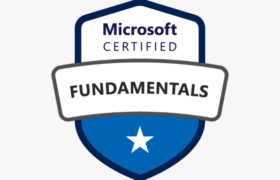
Azure Fundamentals
AZ 900
1k+ Learners
100% Pass Out Ratio
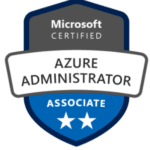
Azure Administrator
AZ 104
1k+ Learners
100% Pass Out Ratio
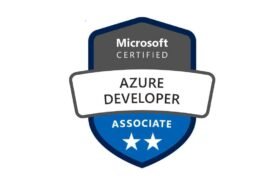
Azure Developer
AZ 204
1k+ Learners
100% Pass Out Ratio
Other Cloud Certifications Programs
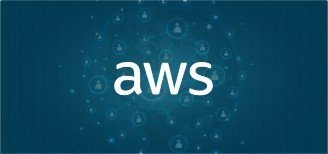
AWS Certifications
Learn more on all the levels of AWS Certifications.
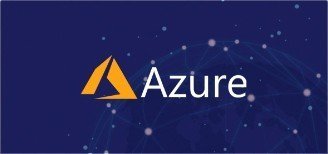
Azure Certifications
Dig deeper with all the levels of Azure Certifications.
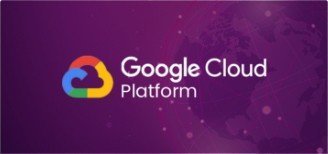
GCP Certifications
Know more on all the levels of Google Cloud Platform Certifications.
We are an exclusive cloud training and development company. We teach IT professionals, business leaders and fresh aspiring cloud professionals.
- 5206 FM 1960 Rd West, #214, Houston TX 77069
Sign up for our mailing list to get latest updates and offers.
Quick Links
Company
Discover
Work With Us
Working Hours
- Mon to Fri : 8 am to 6 pm CST
- Sat : 8 am to 2 pm CST
- Sun : Closed


